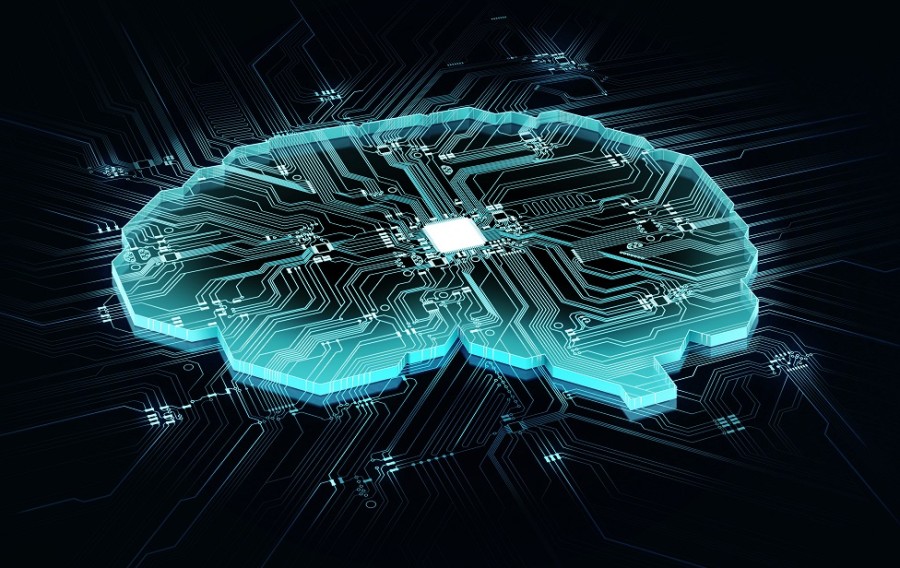The Information Age is witnessing a major shift brought about by advancements in artificial intelligence (AI). While the technology itself isn't new (albeit it's more advanced), what's unique is the availability of and access to AI like Open AI's ChatGPT, which has enormous potential for streamlining traditional legal service delivery models.
In the corporate law space, the use of AI has potential to streamline transaction processes, and improve accuracy and efficiency in due diligence, contract review and analysis, litigation and regulatory compliance, and document preparation, thereby reducing costs for clients.
But these impressive improvements aren’t without limitations and risks for businesses.
This article will examine the potential impact, benefits and challenges of AI like ChatGPT in the delivery of corporate legal services.
The current landscape
Corporate transactions, such as mergers and acquisitions (M&A) and equity capital markets (ECM) deals, often involve the analysis of large amounts of data, and the preparation of large amounts of paperwork, within tight timeframes. As a result, corporate law practice groups have invested in and adopted a wide range of legal technologies to assist with contract review, due diligence, remote signing and execution, and project management.
With the emergence of ChatGPT, firms globally have been experimenting with ways to harness the technology to enhance the productivity and quality of traditional legal work.
In assessing the potential application of AI in this space, it's first helpful to understand more about the technology.
What is ChatGPT?
ChatGPT is a natural language processing tool powered by AI and is trained to analyse a prompt (an instruction from a user) and generate a response.
How does ChatGPT perform on legal tasks?
There have been many studies conducted to test the quality of legal know-how provided by ChatGPT. While the overall results are generally considered subpar compared with outputs from an experienced lawyer, the responses show promise in creating new efficiencies for legal services providers, and therefore cost savings for clients.
Practical uses for ChatGPT
In its current form, ChatGPT has a range of practical applications for lawyers, including:
- general legal research and simple drafting;
- summarising court decisions and legislation;
- explaining general legal principles;
- drafting simple clauses and definitions used in legal documents - e.g. general boilerplate provisions at the back-end of long-form commercial contracts; and
- generating draft content for presentations and articles.
All of this, of course, with the output being carefully reviewed by a qualified lawyer to deliver a professional and tailored deliverable for the client.
The challenges of artificial intelligence in legal services
Incorporating AI into the delivery of corporate legal services is not without its challenges. Below, we explore the key risks and limitations of ChatGPT.
Quality of data
Among the biggest concerns with ChatGPT is the quality of data upon which the technology is trained. The following limitations have important implications for the use of the technology:
- ChatGPT is underpinned by the "large language model", which is a statistical tool used to predict language and produce statistically plausible responses. As a result, ChatGPT is sensitive to language and the composition of words. This means that the quality of its responses varies depending on the quality of the inputs from users.
- ChatGPT's training data set is limited to information pre-2021, which means its responses may be based on out-of-date information, particularly as it pertains to legislative and regulatory changes since 2021.
- ChatGPT is trained on large amounts of data, including text from internet webpages, forums like Reddit and user-generated-content sites like Wikipedia. Given the power of the internet to proliferate misinformation, there is reason to question the reliability of the AI's outputs generated from flawed inputs.
- ChatGPT provides limited transparency about the data it uses to produce each response, making responses unverifiable and often unreliable in circumstances in which accuracy is paramount.
- The data upon which ChatGPT is trained may be subject to biases, leading to responses that are incorrect, misleading or even discriminatory.
Intellectual property (IP)
ChatGPT's inability to verify the sources of information used to inform its responses also poses a risk of users infringing upon someone else's intellectual property rights (including copyright).
Privacy
The rapid adoption of ChatGPT is outpacing the speed at which governments and businesses can adapt, creating optimal conditions for misuse and non-compliance.
In some instances, in the absence of policies or guidance, users may input confidential or sensitive data into the system that breaches their professional duties and/or obligations to clients.
Without adequate governance in place, AI can pose a very real threat to data privacy and compliance.
Context
ChatGPT is unable to account for a client's unique context or circumstances, except where this information is supplied as a prompt, which could constitute a violation of privacy and confidentiality.
Corporate law matters are often complex, involving bespoke factual, legal and financial considerations. A full and proper account of such matters would require disclosure of these specifics to ChatGPT. The alternative creates overly simplistic, generic, inaccurate, or incomplete outputs that represent greater risks than benefits.
The CEO of Open AI, Sam Altman, has acknowledged these limitations, cautioning that ChatGPT is "incredibly limited, but good enough at some things to create a misleading impression of greatness… it's a mistake to be relying on it for anything important right now. It's a preview of progress [but] we have lots of work to do on robustness and truthfulness".
Looking ahead
While in its current form ChatGPT has limited application for lawyers in the preparation of reliable deliverables, in the future, it is not unforeseeable that law firms invest in AI to expedite rudimentary or repetitive tasks.
This model would support junior lawyers to prepare initial drafts of documents more promptly, with more senior lawyers then supervising, reviewing, tailoring and settling those documents for external delivery.
By way of example, a private and secure AI with access to a firm's collection of precedents and other key data would be incredibly powerful for firms and clients.
In the M&A space, such technology could prove useful to prepare first drafts of due diligence checklists and reports, non-disclosure agreements, simple share and business transfer agreements, assignment / novation documents, and deal completion documents.
In the ECM space, such technology could be harnessed to prepare first drafts of "process" documents used in capital raisings, such as due diligence planning memoranda, due diligence committee reports and sign-offs, and verification documents.
Conclusion
Corporate law is an area where accuracy and nuance are vital. Therefore, businesses are likely to continue to engage human lawyers for the time being for their accountability, expertise and assurance.
However, the benefits of incorporating AI into the delivery of legal services in the corporate law space are too significant to ignore. As technology advances, data sets are better managed, and internal processes and policies evolve, it won't be long before AI is built into everyday work, providing clients and firms with greater service, quality and efficiency.
In conclusion, ChatGPT has shown that developing AI technology continues to have the potential to significantly impact the delivery of corporate legal services. While there are challenges that must be addressed, the benefits of incorporating AI into corporate legal services are substantial and will, in our view, lead to its widespread adoption sooner rather than later.
All information on this site is of a general nature only and is not intended to be relied upon as, nor to be a substitute for, specific legal professional advice. No responsibility for the loss occasioned to any person acting on or refraining from action as a result of any material published can be accepted. Lander & Rogers is furthermore committed to providing legal advice and content that is factual, true, practical and understandable. Learn more about our editorial policy.
 Client portal
Client portal











